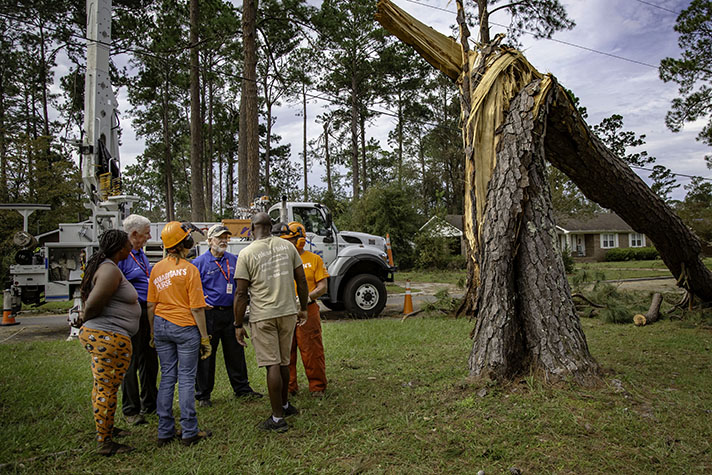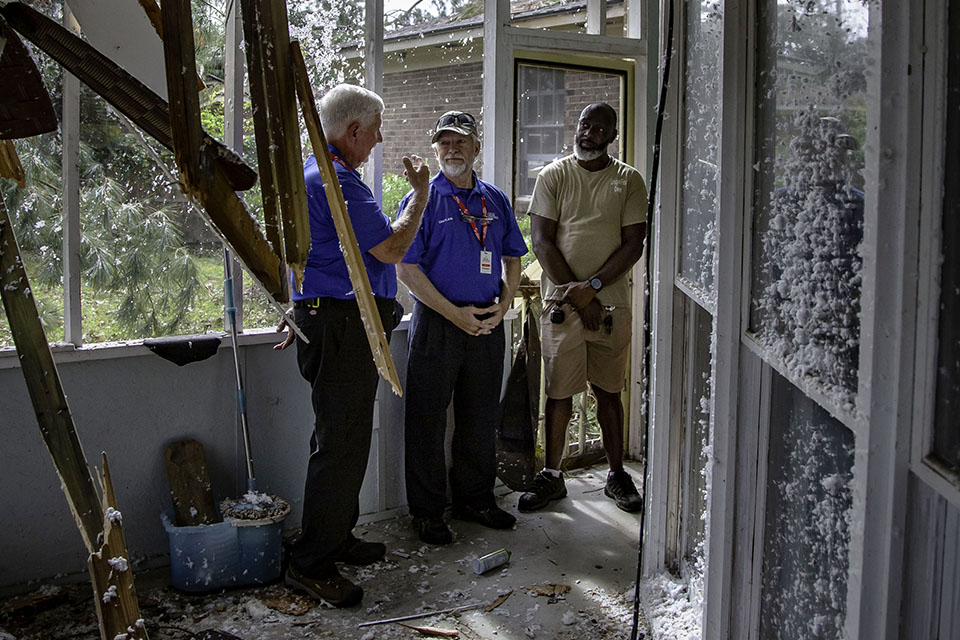
Crumbled mountainside highways, homes submerged in rushing water, towns washed away by mudslides and flash floods—the destruction Hurricane Helene has wreaked across the Southeast is staggering.
Over the weekend, dozens of Billy Graham Rapid Response Team chaplains began deploying to Florida, Georgia, Tennessee, and western North Carolina. They’re ministering to shocked and overwhelmed residents as they grapple with immense damage and loss.
Sister ministry Samaritan’s Purse, based in Boone—one of the hardest-hit western North Carolina towns—is also providing disaster relief to these areas.
“The storm has hit in our own backyard,” said Franklin Graham. “Homes have been flooded and some even washed away, trees are down, tens of thousands are still without power.”
Among the deadliest of U.S. hurricanes in the last 50 years, the storm is responsible for the deaths of over 180 people. That number is expected to increase, as hundreds more are still missing.
Many people are trying to evacuate their communities after being stranded without basic necessities such as food, water, and gasoline.

“It’s bad, and I’m afraid it’s going to get worse in the coming days. There are shortages of gas and water, and the devastation is widespread,” said Will Graham, whose family also resides in the North Carolina mountains.
“Please pray. That’s the most important thing you can do right now.”
Will you join us in prayer? Ask God to comfort all those who have lost loved ones in this disaster and to bring hope to displaced residents as they experience grief and uncertainty.


